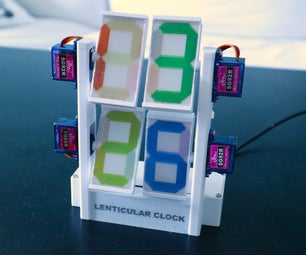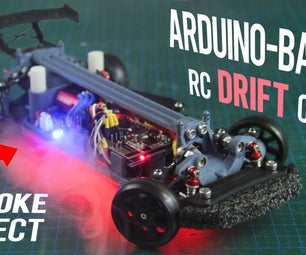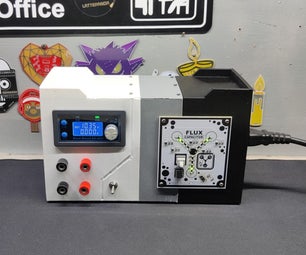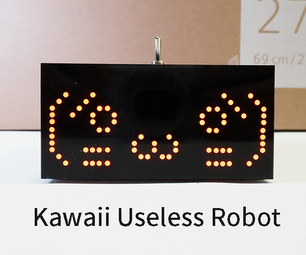Introduction: The Black MAC or Bringing New Life to an Old Case.
A couple of month ago I received an old MAC case. Empty, only a rusted chassis was left inside. I put it away in my workshop and last week it comes back in mind.
The case was ugly, covered with nicotine and dirt with a lot of scratches. First approach was to use retrobright to bring back the original color. But I remembered, that Apple build some black Notebooks in the past and i thought "What if". What if there was a black Macintosh?
I used the following materials:
Hardware:
Macintosh case
- Mini ITX Motherboard (eBay) 2GByte RAM, 2x1.6 GHz Atom CPU, 4 internal, 4 external USB ports
- Pico ATX power supply
- SSD hard drive
- 8 inch TFT monitor 800x600 pixels VGA (I found one cheap and used at eBay)
- 2 pairs of USB case connectors
- 12 V power supply 12V/5A
- Power connector with switch or similar
- Mini USB Speaker
- Momentary switch or similar
- Black keyboard and mouse (wireless)
- USB WLAN Adapter (with WIN XP support)
Software
- Windows XP (easy to install, runs fast and easy to mod, cheap as well)
- Rocketdock (the dock bar)
- Some nice Icons (see Rocketdock >> Download >> Addons >> Icons)
- Basilisk II (MAC classic emulator)
Paint and Glue
- Plastic Primer
- Black Paint
- Hammerite anti rust paint
- 2 component glue for plastics
All links are examples!
Step 1: The Chassis
The chassis was damage by a leaked battery.
I cleaned it and painted it with Hammerite paint.
To mount the motherboard I decided to use a PVC platter glued onto the chassis.
Step 2: Preparing the Speakers
The USB speaker was teared down carefully. Sometimes there is a screw underneath the logo.
I removed the speakers and the electronics very carefully and cut the frames for the speakers.
Than the USB cable was shorted and two connectors for the speakers where applied.
Step 3: Preparing the Front Panel
I cut the rear panel of the USB connectors to the right shape and glued it underneath the old floppy slot.
The speaker frames where placed to the original speaker frame of the MAC.
Step 4: Power, Motherboard, SSD, USB and Sound
The Power supply is mounted on a PVC platter. The platter is mounted at that place where the MAC PCB was attached.
The Motherboard is mounted with the connectors to the front to make the connection of the TFT easier.
The SSD disk is mounted directly onto the chassis side panel where the old HDD was mounted. I drilled two additional holes into the chassis.
The second USB panel is mounted into the frame for the original extension card slot of the MAC.
The USB sound board was glued near the USB ports.
Step 5: Preparing the TFT
The original MAC had a 9 inch tube monitor inside but there is no 9 inch TFT available to buy.
So I bought a 8 inch TFT and I decided to use the front panel of the TFT as an adapter.
The TFT was dismounted and the front panel was cut into the right shape.
Step 6: Preparing the Front Panel Part 2
Due to the CRT Monitor the front panel doesn't fit the TFT monitor.
With a small saw and a drill press I solved that problem. ;-)
With 2 component glue the TFT frame and the front panel where glued together.
Step 7: Painting
First of all I used the dishwasher (2 times, 55 degrees C) to clean the case. Don´t tell my wife ;-)
After that two layers or primer where sprayed onto the plastics.
Than three layers of black paint (non glossy) where sprayed.
After everything was dried I found, that there are some scratches visible.
Step 8: Mounting Everything Together
The momentary switch where placed to the hole for the former brightness knob.
Speaker and TFT where glued in place.
After a while of operation I found that it is becoming rather hot inside the case. So a small fan was mounted and connected. The speed was set to minimum and the airflow is enough to keep the case cool.
Step 9: Emulation and WINDOWS Desktop
I really like to have an old OS 7 running on that "new MAC"
Basilisk II is doing that job very well. Please follow the instructions on the linked Basilisk II page.
Even the famous RagTime as available for free :-)
To give the WIN XP an OSX - like look, Rocket Dock was installed and used as a "shell" for the most functions, folders and programs.











